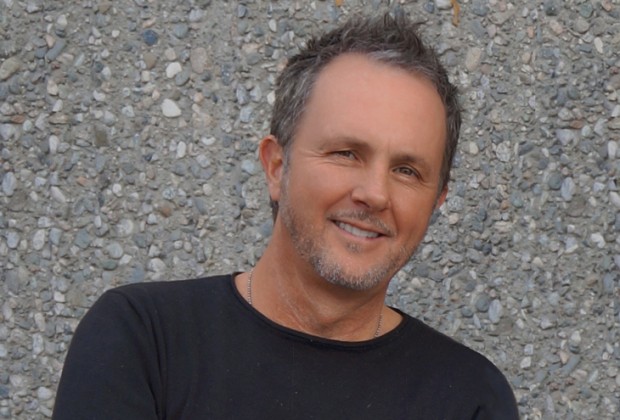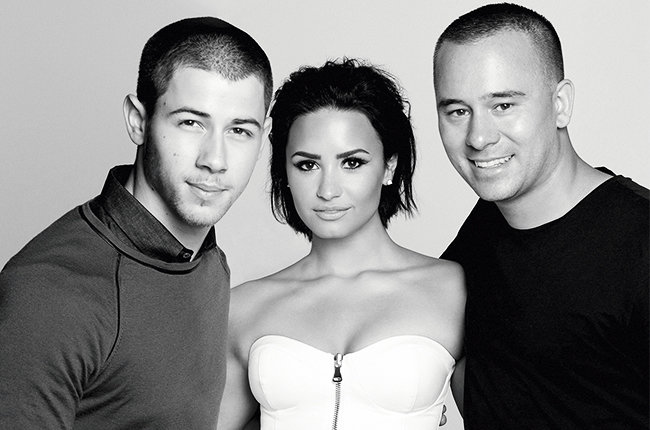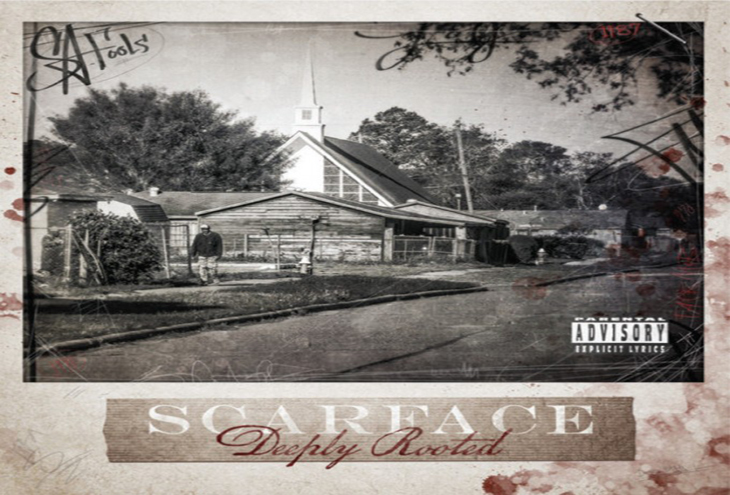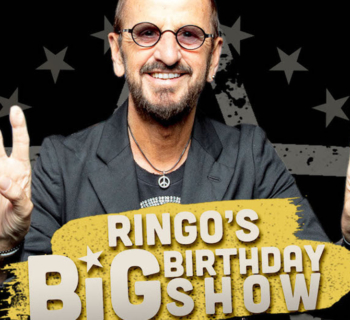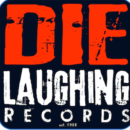Producer and composer C.J. Vanston was born in Michigan and joined an R&B horn band before he was old enough to buy cigarettes. He moved to Chicago soon after and began work as a keyboard session player cutting commercial jingles. He made the jump to Los Angeles in 1988 where he segued into composing for film. Much of his career has since been shaped by personal relationships, notably those with Spinal Tap formative forces Christopher Guest and Harry Shearer. Indeed, he’s toured extensively with the band and worked with artists including Prince, Ringo Starr and Richard Marx. Arranging Marx’s “Right Here Waiting” was his first taste of the big time.
One of his keys to success in film composition is his jingle-writing background. “I jumped around a lot,” he explains. “A lot of musical styles. At 9 a.m. I was a jazz musician, at 10 a.m. I was playing country. It was great training. When I got to L.A., people weren’t used to musicians being as fast as I was, so I really took off. Guys that were making records did it at a plodding pace and I just kind of burned.”
Perhaps the most crucial component of his success has been his willingness to “step in front of the train,” as he puts it, when asked to take on something new. “Christopher [Guest] asked me if I’d ever done [music for] films. I said ‘Are you kidding? Of course I do.’ I hadn’t [but] I took to it instantly. It was easy to read emotions and build something. It’s natural for me because I’m not afraid of challenges. Throwing yourself in front of a train makes you run really fast.”
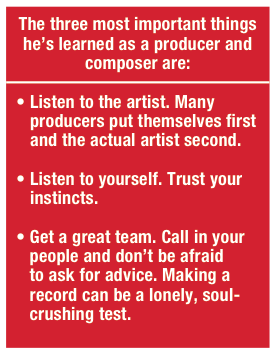 One of the biggest shortcomings he sees in other films is composers making obvious choices. “The trap is going with what you see,” he observes. “Unless you’re doing an action film, that’s the death knell. You have to get into the characters’ minds and deal with what they feel, what they’re about to feel or what they’ve felt in the past. Don’t go with exactly what they’re feeling at that moment. Go with the movie arc. The music needs to grow with the story; it needs to represent the [dramatic] drop and climb.
One of the biggest shortcomings he sees in other films is composers making obvious choices. “The trap is going with what you see,” he observes. “Unless you’re doing an action film, that’s the death knell. You have to get into the characters’ minds and deal with what they feel, what they’re about to feel or what they’ve felt in the past. Don’t go with exactly what they’re feeling at that moment. Go with the movie arc. The music needs to grow with the story; it needs to represent the [dramatic] drop and climb.
“Also be mindful of what the director feels, wants to foreshadow or wants to avoid foreshadowing,” he continues. “If trouble is coming as a character walks down a dark street, don’t give that away. Christopher always says that you can’t have two jokes [at once]. If you’ve got a joke on the screen and the music is doing a joke, it’s a double joke and it works against itself. Often I’ll play these bumbling idiots as the hero they perceive themselves to be. That makes them appear even more bumbling.”
To rising producers and even established musicians, Vanston emphasizes a firm grasp of music history. “Do your research,” he insists. “Find out who Weather Report is. Find out who Steely Dan is. You have to know your bands. Kids come out of school and they may be amazing players, but many of them don’t know their history.”
Currently he’s working with Harry Shearer on his latest record as well as composing for Guest’s new Netflix film Mascots. Also on his slate is production for French artist Tal. He’s even entertained the idea of a book that shares some of his many stories from the road. One of his favorites is about Slash sabotaging Spinal Tap’s gear before their performance at Wembley Stadium for The Freddie Mercury Tribute Concert in ‘92. The audience took it for typical Tap turmoil and it earned the band a standing ovation. The guys in Tap, however, weren’t as amused. It’s doubtful that many amps made it to 11 that night.
Contact Bridge Gardiner / Buddha Global Consulting; cjvanston.com

